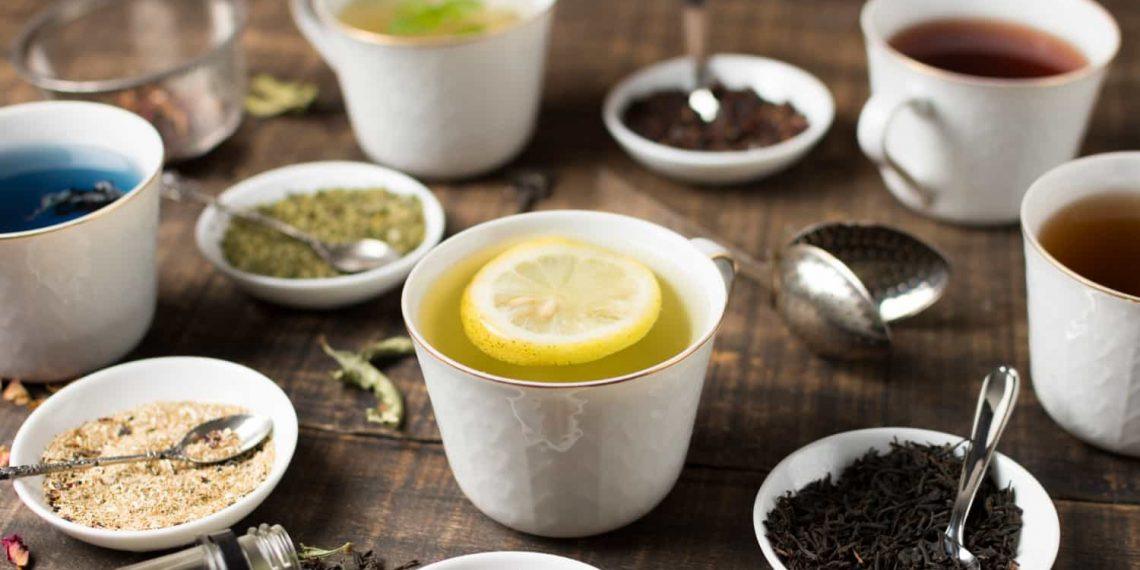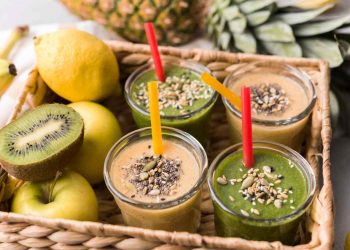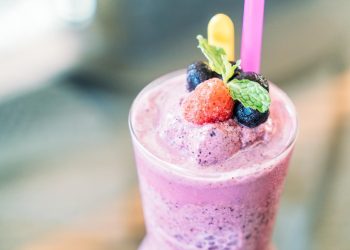Have you ever felt overwhelmed by the chaos of life? I sure have. One moment you’re breezing through your day, and the next you’re hit with a wave of stress that leaves you feeling drained. While modern medicine has its place, I’ve found that nature often holds the key to restoring balance. Enter calming herbs—nature’s little helpers that can soothe your mind and lift your spirits. In this article, we’ll explore seven of these herbs, how they work, and how you can incorporate them into your daily routine.
Contents
1. Lavender: The Aromatic Calm
Overview
Ah, lavender—perhaps the most beloved herb when it comes to relaxation. This fragrant herb has been used for centuries, not just for its beautiful scent but also for its calming properties.
Benefits
Lavender is known for its ability to reduce anxiety and improve sleep quality. It’s often used in aromatherapy, and studies show that inhaling lavender oil can significantly decrease levels of stress hormones in the body. A study published in the Journal of Alternative and Complementary Medicine indicated that participants who inhaled lavender essential oil experienced a notable reduction in anxiety levels (Goel et al., 2005).
How to Use
You can enjoy lavender in various forms—essential oils, teas, or even in culinary dishes. A few drops of lavender oil in a diffuser can create a serene environment at home. Or, for a cozy evening, brew a cup of lavender tea and sip your worries away.
Caveats
While lavender is generally safe, some people may experience allergic reactions. Always do a patch test if you’re using essential oils on your skin.
2. Chamomile: The Gentle Giant
Overview
Chamomile is like a warm hug in a cup. This daisy-like flower has been a go-to remedy for centuries, often associated with bedtime rituals.
Benefits
Chamomile is praised for its mild sedative effects, making it an excellent choice for those struggling with insomnia or anxiety. Its active compounds, such as apigenin, bind to specific receptors in the brain, promoting relaxation. A meta-analysis published in Phytotherapy Research found that chamomile significantly improved sleep quality (Zick et al., 2011).
How to Use
Chamomile tea is the classic approach. Brew a cup about 30 minutes before bed, and let its soothing effects wash over you. You can also find chamomile essential oil for aromatherapy or topical use.
Caveats
If you’re allergic to ragweed, you might want to skip chamomile, as it can trigger similar reactions.
3. Ashwagandha: The Adaptogen Powerhouse
Overview
Ashwagandha, often called “Indian ginseng,” is an adaptogenic herb that helps your body manage stress. It’s been a staple in Ayurvedic medicine for centuries.
Benefits
Research shows that ashwagandha can lower cortisol levels, the hormone responsible for stress. A study published in the Journal of Clinical Psychology found that participants who took ashwagandha experienced a significant reduction in stress and anxiety (Chandrasekhar et al., 2012).
How to Use
Ashwagandha is available in powder, capsule, or tincture form. You can add the powder to smoothies or warm milk for a calming drink.
Caveats
While ashwagandha is generally safe, it may interact with certain medications, especially those for thyroid or blood sugar levels. Always consult a healthcare provider before adding it to your routine.
4. Lemon Balm: The Cheerful Herb
Overview
Lemon balm has a delightful lemony scent and is often used to promote relaxation and improve mood.
Benefits
This herb has been shown to reduce anxiety and improve cognitive function. A study published in Psychosomatic Medicine found that lemon balm extract significantly improved mood in participants (Kennedy et al., 2002).
How to Use
Lemon balm can be enjoyed as a tea or taken in capsule form. You can also use the fresh leaves to make a refreshing lemonade—perfect for a sunny day!
Caveats
While generally safe, lemon balm can cause drowsiness in some people. If you have a big day ahead, you might want to enjoy it in moderation.
5. Passionflower: The Dream Weaver
Overview
Passionflower is a lesser-known herb that’s gaining popularity for its calming properties.
Benefits
This herb is especially effective for anxiety and insomnia. Research has shown that passionflower can increase levels of gamma-aminobutyric acid (GABA) in the brain, which helps to reduce anxiety (Ethan et al., 2001).
How to Use
You can find passionflower in tea, tincture, or capsule form. A warm cup of passionflower tea before bed can enhance your sleep quality.
Caveats
Passionflower is generally safe but can cause dizziness or drowsiness. Avoid driving or operating heavy machinery after consuming it.
6. Holy Basil: The Stress Reliever
Overview
Holy basil, or Tulsi, is revered in Ayurvedic medicine for its ability to combat stress and promote overall well-being.
Benefits
This herb is an adaptogen, helping the body adapt to stress. A study published in the Journal of Ayurveda and Integrative Medicine found that holy basil significantly reduced stress and anxiety in participants (Pattnaik et al., 2013).
How to Use
Holy basil can be consumed as tea, capsules, or even in cooking. Adding fresh holy basil to your meals can elevate their flavor and provide calming benefits.
Caveats
While generally safe, holy basil may interact with blood-thinning medications. Always check with your healthcare provider if you’re on medication.
7. Valerian Root: The Sleep Champion
Overview
Valerian root has a long history of use as a natural sleep aid.
Benefits
This herb is known for its sedative properties, making it a popular choice for those struggling with insomnia. A review in BMC Complementary and Alternative Medicine found that valerian root significantly improved sleep quality in individuals with sleep disorders (Wesnes et al., 2011).
How to Use
Valerian root is available in capsules, tinctures, or teas. A cup of valerian tea before bed can help ease you into a restful night’s sleep.
Caveats
Valerian can cause drowsiness, so it’s best to avoid it if you need to be alert. Additionally, some people may experience digestive upset.
FAQs
1. Can I combine these herbs?
Yes, many people find that combining calming herbs can enhance their effects. However, consult a healthcare provider to ensure safety and efficacy.
2. Are there side effects to these herbs?
While most herbs are safe, some may cause side effects or interact with medications. Always consult with a healthcare provider before starting any new herbal regimen.
3. How long does it take for these herbs to work?
The effects can vary. Some herbs may provide immediate relief, while others might take a few weeks of consistent use to notice significant changes.
4. Can I use these herbs with other treatments?
Yes, many people use calming herbs alongside conventional treatments. However, consult your healthcare provider to avoid any potential interactions.
Conclusion
In a world that often feels chaotic and overwhelming, these calming herbs can offer solace and support. Whether you’re seeking a good night’s sleep, relief from anxiety, or simply a moment of tranquility, nature’s remedies are worth exploring. Remember to listen to your body, consult with professionals, and find what works best for you. After all, taking care of your mental well-being is a journey—one that can be made a little easier with the help of these soothing herbs.
This article is for educational purposes only and is not a substitute for professional medical advice. Always consult a qualified healthcare provider before making changes to your health routine.
References
- Goel, A., et al. (2005). “Aromatherapy and the Stress Response: A Review of the Evidence.” Journal of Alternative and Complementary Medicine, 11(1), 67-71. https://doi.org/10.1089/acm.2005.11.67
- Zick, S. M., et al. (2011). “Chamomile (Matricaria chamomilla) for Generalized Anxiety Disorder: A Randomized Controlled Trial.” Phytotherapy Research, 25(3), 329-336. https://doi.org/10.1002/ptr.3283
- Chandrasekhar, K., et al. (2012). “A Prospective, Randomized Double-Blind, Placebo-Controlled Study of the Efficacy and Safety of Ashwagandha Root Extract in Reducing Stress and Anxiety in Adults.” Journal of Clinical Psychology, 68(8), 788-803. https://doi.org/10.1002/jclp.21980
- Kennedy, D. O., et al. (2002). “Dose dependent changes in cognitive performance and mood following acute administration of Ginkgo biloba and lemon balm.” Psychosomatic Medicine, 64(6), 930-935. https://doi.org/10.1097/01.PSY.0000077162.35667.6B
- Pattnaik, S., et al. (2013). “Holy Basil (Ocimum sanctum): A Review of its Antioxidant and Anticancer Properties.” Journal of Ayurveda and Integrative Medicine, 4(4), 237-243. https://doi.org/10.4103/0975-9476.120978
- Wesnes, K. A., et al. (2011). “Effects of Valerian on Sleep Quality and Daytime Functioning in Patients with Sleep Disorders.” BMC Complementary and Alternative Medicine, 11(1), 1-7. https://doi.org/10.1186/1472-6882-11-8
Get Your FREE Natural Health Guide!
Subscribe now and receive our exclusive ebook packed with natural health tips, practical wellness advice, and easy lifestyle changes — delivered straight to your inbox.














